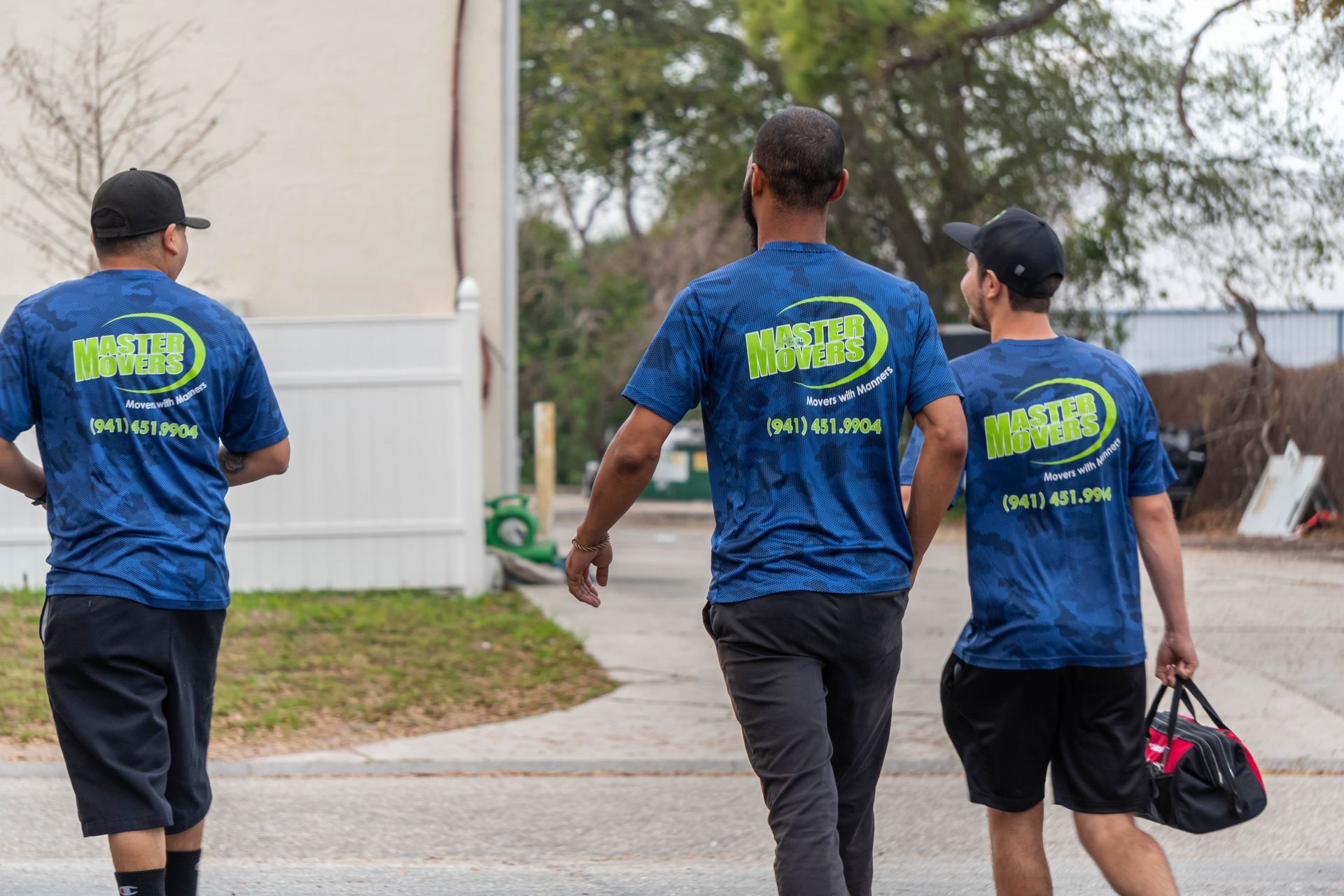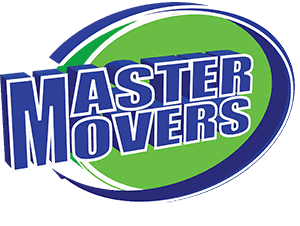MOVERS WITH MANNERS
Need Help? (941) 231-6524
MOVERS WITH MANNERS
Need Help? (941) 231-6524
The Residential Move Planner


Moving can be one of life’s most challenging events, especially when relocating to a new home. However, with the right preparation and knowledge, the process can be significantly smoother. This guide offers comprehensive insights into each step of planning a residential move, from the initial decisions to the final touches after you’ve settled in. Whether you’re relocating across town or cross-country, understanding the key aspects of moving will help ensure a successful transition.
Setting the Scene: Why Proper Planning is Crucial for a Smooth Move
Moving to a new home is an exciting journey, but it comes with its own set of challenges. From packing all your belongings to ensuring everything arrives at your new location safely, the moving process can be daunting. Effective planning plays a pivotal role in managing the move without hassle and undue stress. Master Movers, a moving company based in Venice, FL, emphasizes that starting your move with a clear plan can make your experience predictably smoother and more enjoyable.
Overview of Common Challenges and Stresses During a Move
Residential moves involves several steps each with potential pitfalls:
- Logistic complexities: Coordinating the move-out and move-in dates, hiring movers, and arranging the transportation of goods can become complicated.
- Emotional strain: Leaving a familiar place can cause significant emotional distress and anxiety.
- Physical demands: Packing and unpacking are labor-intensive tasks that can lead to physical exhaustion.
How Proper Planning Can Mitigate These Issues
A well-thought-out move plan addresses these issues head-on:
- Reduces uncertainty: Knowing what to expect and when to expect it helps manage anxiety and stress.
- Efficiency gains: With a solid plan, you can efficiently manage your time and resources, reducing the physical toll of moving.
- Smooth operation: Coordinating all aspects of the move ensures a seamless transition from your old home to the new one.
Starting Your Move Off Right: Initial Steps in Planning Your Move
Establishing Your Moving Timeline
Creating a detailed timeline is crucial for a well-organized move. This schedule should outline every task that needs to be completed from the day you decide to move until you are fully settled in your new home. Here’s how to set up your moving timeline:
- Pre-Move Preparations (8-12 weeks before the move):
- Research moving companies and obtain quotes.
- Begin sorting through belongings and decluttering.
- Booking Movers (6-8 weeks out):
- Choose a moving company, such as Master Movers, and confirm your moving date.
- Start collecting moving supplies such as boxes, tape, and packing material.
- Begin Packing (4-6 weeks out):
- Start packing items you use infrequently.
- Label boxes with contents and intended room in the new house.
- Final Weeks (1-2 weeks before the move):
- Complete general packing.
- Confirm moving day details with your moving company.
- Moving Day:
- Perform a final walkthrough of your home.
- Ensure that all items are loaded and accounted for before heading to your new residence.
- Post-Move (1-2 weeks after moving):
- Unpack essential items.
- Begin the process of settling into your new home.
Budgeting for Your Move
Creating a budget for your move is essential to keep expenses under control. Consider these costs:
- Moving company fees: Depending on distance and the volume of goods.
- Packing materials: Boxes, packing tape, bubble wrap, and more.
- Travel costs: If long distances move, include travel costs for you and your family.
- Insurance and additional services: Optional services such as furniture disassembly or comprehensive insurance coverage.
Choosing the Right Moving Company
Selecting a reliable moving company is paramount. Here’s what to look for:
- Reputation: Check reviews and testimonials to gauge past customer experiences.
- Services Offered: Ensure they provide the specific services you need, such as packing, unpacking, or storage.
- License and Insurance: Verify that the company is licensed and insured to protect your belongings during the move.
Organizing the Pre-Move Process
Decluttering Before You Pack
Decluttering is a critical step in preparing for a move. It not only simplifies the packing and unpacking process but also reduces moving costs by decreasing the load. Here’s how to effectively declutter:
- Sort Your Belongings:
- Create categories: Keep, Donate, Sell, and Discard.
- Start with one room at a time to avoid overwhelm.
- Hold a Garage Sale or Donate:
- Sell items in good condition or donate them to charity.
- Proper disposal of items that are not fit for sale or donation.
- Benefits of Decluttering:
- Less to pack and unpack.
- Reduced transportation costs.
- Cleaners start at the new home.
Essential Packing Tips and Tricks
Efficient packing saves time and protects your belongings from damage. Consider these professional tips:
- Effective Packing Practices:
- Use sturdy boxes and quality packing materials.
- Pack heavier items in smaller boxes to keep them manageable.
- Label each box with its contents and the room it belongs in.
- Special Items:
- Use specialty containers for items like dishes or electronics.
- Consider professional packing for valuable or fragile items.
- Organization and Inventory:
- Maintain a detailed inventory of all packed items.
- Use a numbering system to keep track of boxes and their contents.
Address Change and Notifications
It’s important to update your address and notify relevant parties about your move:
- Who to Notify:
- Utility companies (electric, water, cable, internet).
- Banks, insurance providers, and other financial institutions.
- Friends and family.
- Changing Your Address:
- Submit a Change of Address form to the USPS.
- Update your address for online services and subscriptions.
Weeks Leading Up to the Move: Finalizing Details
Confirming Details with Your Moving Company
As the moving day approaches, reconfirming all details with your moving company can prevent last-minute surprises:
- Confirmation Checklist:
- Verify the move date and time.
- Confirm the inventory list and discuss any special arrangements.
- Review insurance coverage and liability for damaged or lost items.
- Last-Minute Changes:
- Report any changes in your inventory or move scope.
- Ensure communication lines remain open for any updates.
Preparing for Moving Day
Preparing thoroughly a day before moving ensures a smooth transition:
- Preparation Tips:
- Ensure all boxes are properly sealed and labeled.
- Prepare an overnight bag with essentials for the first night in your new home.
- Arrange for parking and elevator access if needed.
- Children and Pets:
- Arrange childcare or pet care during the move.
- Pack necessary items for them in a separate, easily accessible box.
Creating an Essentials Box
An essentials box helps you settle into your new home without immediately unpacking everything. It should contain:
- Toiletries, medications, and first aid supplies.
- Basic kitchen supplies and a few non-perishable food items.
- Bed linens, towels, and a change of clothes.
- Important documents, chargers, and tools for assembling furniture.
Moving Day: Execution and Oversight
Role of a Move Manager
A Move Manager from Master Movers plays a crucial role in ensuring your moving day goes smoothly. Here’s what they do:
- Coordination and Supervision:
- Oversee all moving day operations to ensure everything proceeds according to plan.
- Coordinate with the moving crew to optimize efficiency and handle any unexpected issues.
- Communication:
- Serve as the primary contact point for any queries or concerns you might have during the move.
- Provide updates and guidance throughout the moving process.
- Problem Solving:
- Quickly address any challenges that arise, from last-minute packing needs to logistics adjustments.
Common Moving Day Challenges
Despite the best plans, certain common issues can arise on moving day. Being prepared for these can help you manage them effectively:
- Delays and Timing Issues:
- Traffic, weather conditions, and last-minute packing can cause delays.
- Flexibility and early preparation can mitigate these concerns.
- Damaged or Lost Items:
- Occasionally, items may get damaged or misplaced during the hustle.
- Ensure you have adequate insurance and take pictures of your items before the move as precautionary measures.
Settling In: Post-Move Tips
Unpacking Strategies
Once the movers have left, it's time to tackle the task of unpacking and making your new house feel like home. Here are some effective strategies:
- Prioritize by Necessity:
- Start with essentials like the bedroom and bathroom.
- Unpack critical kitchen items to facilitate meal preparation.
- Organize as You Unpack:
- Set up each room systematically based on your pre-planned layout.
- Adjust furniture and decorations as you unpack boxes to avoid re-organizing later.
Home Settling Tips
Adjusting to a new environment can take time, but these tips can help you settle in quickly and comfortably:
- Mechanical and Infrastructure Checks:
- Ensure all utilities are functioning correctly.
- Familiarize yourself with the circuit breaker and main water valve locations for emergencies.
- Community Integration:
- Introduce yourself to neighbors and explore your new locality.
- Join local online or community groups to get involved and receive support.
Key Considerations and Additional Resources
Seasonal Moving Tips
Every season has specific challenges when it comes to moving. Here’s how to adapt:
- Spring: Ideal due to moderate weather, but be aware of rainy days.
- Summer: Advantageous for families during school breaks, though it can be hot.
- Fall: Cooler weather and less busy moving crews.
- Winter: Less common but requires handling snow and ice conditions.
Resources and Tools for Planning Your Move
Several online tools can ease the moving process:
- Apps and Websites: Utilize planning apps like Sortly for inventory or MoveAdvisor for timelines.
- Checklists and Guides: Download moving checklists from reputable sources like Master Moving, which provide tailored advice for different moving scenarios.
Ensuring a Successful Residential Move
Moving can be an overwhelming experience, but strategic planning and choosing the right moving company can alleviate most of your stress.
Master Movers, offers comprehensive moving services designed to make your residential move as smooth and stress-free as possible. Remember, the key to a successful move is preparation, and with the right help, you can transition into your new home with ease.
Our Latest Blog

Services
© Copyright 2025 | All Rights Reserved | Movers With Manners




